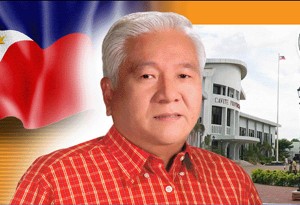MANILA, Philippines—The graft case against former Cavite Gov. Erineo “Ayong” Maliksi in connection with the alleged anomalous purchase of P2.5-million worth of medicines 12 years ago has been raffled off to the Sandiganbayan’s Second Division chaired by Associate Justice Teresita Diaz-Baldos.
Maliksi, a political ally of President Benigno Aquino III, stands accused of “willfully, unlawfully and criminally” providing unwarranted benefits to the private supplier of the medicines by awarding the contract without a public bidding and “without proving that among the suppliers, its medicines cost the cheapest.”
The criminal case against Maliksi went to Baldos’ division two days after the case was formally submitted to the antigraft court by the Office of the Ombudsman on Wednesday.
Maliksi’s indictment stemmed from a complaint filed by then Cavite Vice Gov. Jonvic Remulla, Maliksi’s erstwhile political ally and now the incumbent governor of the province and one of Vice President Jejomar Binay’s spokespersons.
In its Oct. 22 resolution, the Ombudsman approved Maliksi’s indictment for violation of Republic Act No. 3019, the Anti-Graft and Corrupt Practices Act, after it dismissed his motion for reconsideration.
Citing documents submitted by Remulla, the antigraft body said the provincial government of Cavite bought medicines from Allied Medical Laboratories Inc. in November 2002 without a public bidding as required by law.
The purchase was supposedly funded with the first tranche of a P10-million grant the province received from the Philippine Charity Sweepstakes Office (PCSO).
The funds, however, were released much later, on Feb. 4, 2003, or three months after the procurement had been already made, through a memorandum of agreement that the province entered into with the PCSO.
The Ombudsman said Maliksi failed to prove that there was an emergency situation in the province that necessitated the purchase of the medicines without a public bidding.
